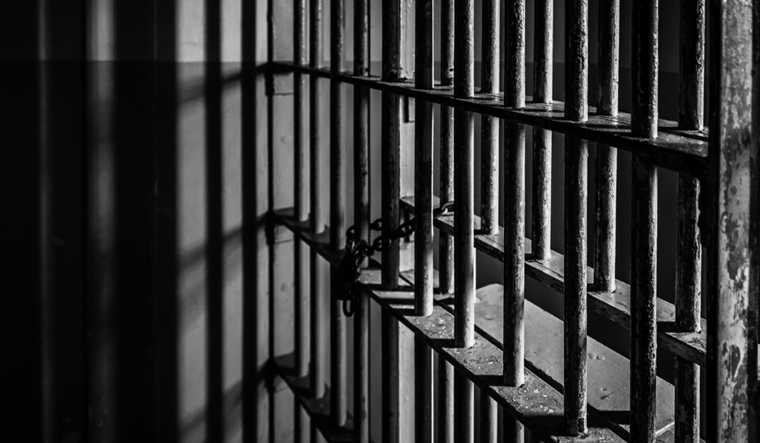
Why TN panel for convict release is ray of hope for 37 Muslim lifers

The Tamil Nadu government’s formation of the N. Adinathan Committee to study and recommend the premature release of convicts serving life imprisonment sentences, has brought a ray of hope to the families of at least 37 Muslim convicts, who so far had been kept out of the lenient initiative.
As per the state government guidelines, convicts under two categories would be considered for premature release – those who have served 10 years of imprisonment as on September 15, the birth anniversary of former Tamil Nadu chief minister CN Annadurai, and those who have completed 20 years in jail.
Also read: The Rajan case that Jai Bhim refers to in passing
Every year, the state government, to mark the birthday of CN Annadurai, releases prisoners, convicted under various crimes, on humanitarian grounds. This time, however, the government in the GO delineated 17 types of crimes, including communal offences, which would disqualify a convict from being considered for premature release.
Islamic organisations and political parties in the state opposed the caveat, arguing that it would restrict 37 Muslim convicts, serving life sentences for bomb blast and murder among others, from being considered for premature release. Following this, the government formed the committee to research and recommend names.
“Every year a GO is issued and the convicts are released without any restrictions. But this year for the first time, the government gave guidelines based on which the convicts were to be chosen for release. One of the guidelines mentioned 17 kinds of disqualifications and one among them said people convicted in communal and religious offences cases are ineligible for premature release. Because of that 37 Muslim convicts were not chosen for release,” said M Mohamed Mansoor Qasimi, one of the coordinators of Tamil Nadu Muslim Organisations and Political Parties Federation.
Of the 37 convicts, 17 are sentenced in 1998 Coimbatore bomb blast case in which 58 people were killed, and the remaining for various murder cases.
Qasimi said that in 2009 and 2010, a total of 10 Muslim convicts were released and after that no convict from the community, charged for communal and religious offences, was released.
Also read: Social justice ministry calls for rehabilitation not imprisonment of drug users
The six-member panel headed by the retired Madras High Court judge N Adinathan will have director of Institute of Mental Health, the Director of Medical Education, chief probation superintendent of prisons department, a psychologist, and a senior criminal lawyer on board. They will study the court orders and judgements pronounced in the past in relevant cases and make their recommendations.
“We hope that the panel will recommend to release who are aged, have co-morbidities and mental health issues and are differently abled. We expect at least 17 of the 37 Muslim convicts to be released at some intervals,” Qasimi said.
‘Purpose of punishment should be to reform, not punish’
Advocate and human rights activist S. Balamurugan said that the panel will not only assess the condition of Muslim convicts, but everyone.
“Earlier premature release was under the control of bureaucracy. But now there are chances that the recommendations made by the committee would come under judicious view. In the case of Veera Bharathi vs State of Tamil Nadu 2016, the Madras High Court had observed that the eligible convicts must be considered for premature release if they have completed 10 years and the ineligible convicts must be considered for release if they have completed 14 years in the prison.
In the case of State of Haryana Vs Rajkumar 2021, the Supreme Court has observed that under the CrPC Sec 433A, the minimum life imprisonment is 14 years and if one has completed the term, the state should not wait for the assent of the Governor to release the convict. Also the state government, as per Article 161 has Constitutional power to release the convicts,” he said.
“India is a welfare state. So here the purpose of punishment should not be punitive but reform and rehabilitation,” added Balamurugan.
He, however, rued that many continue to languish in prisons while political and caste groups lobby for convicts sentenced in cases like Dharmapuri bus arson and Melavalavu Dalit panchayat president murder among others.
Shamma Aslam, wife of Coimbatore blast convict Aslam, who has been in Coimbatore Central Prison for more than 22 years, said that the committee formation should not be mere eyewash.
“The committee should not be another bait to get political mileage in the upcoming urban body local polls. It is to be noted that even the Supreme Court directed the Tamil Nadu government many years ago to consider premature release of Muslim convicts and under trials who were sentenced on false charges in Coimbatore bomb blast case. But neither the AIADMK nor the DMK governments have taken any concrete steps on this front,” she said.
Balamurugan said that a convict’s premature release should be based on how many years he had spent in prison and not on what kind of crime he committed.

